Back
Also known as Gotu Kola, Indian Pennywort is a multifunctional plant with a rich history of use in Ayurveda and other traditional medicines across East Asia.
Best known for its brain health benefits, Indian Pennywort is also used to support nervous system function, emotional well-being, healthy skin, and more.
In this article, we’ll explore the history, benefits, and uses of Indian Pennywort and how to find a clean and authentic source.
Table of Contents
- What is It?
- Are Indian Pennywort and Gotu Kola the Same?
- Traditional Uses
- Benefits
- How to Use
- Safety Guidance
- Choose Organic
- Top Products
What is Indian Pennywort?
Indian Pennywort is one of the East’s most cherished herbs and functional foods.
Often called “the herb of longevity” in Traditional Chinese systems, this creeping perennial vine resembles a lily pad and grows in shady spots along creeks, ponds, swampy areas, or in wetlands in India, Southeast Asia, South Africa, Pakistan, and Eastern Europe.
It belongs to the Apiaceae plant family, which also includes celery, parsley, and carrots.
In traditional Ayurveda, the entire Indian Pennywort plant, including the leaves, stems, and flowers, is used in traditional herbal formulas and cooking.
The leaves are the most commonly used and studied part of the plant and contain the highest concentration of active plant compounds such as Triterpenoid saponins, tannins, essential oils, resins, flavonoids, alkaloids, and others.
According to Ayurveda, Indian Pennywort’s taste is bitter and sweet, and its quality is cooling, making it ideal for balancing excess heat or agitation of body and mind.
It is an adaptogen (a type of herb that increases stress resilience), a nootropic (herb for brain health), and a Rasayana (a rejuvenator).
It’s also considered tridoshic, meaning it can benefit all three doshas: pitta, vata, and kapha.
In Traditional Chinese Medicine, Indian Pennywort is considered a cooling herb that replenishes vital life force, known as “qi.”
Several studies have been conducted on Indian Pennywort, most of which focus on its cognitive health properties, which we’ll explore more in subsequent sections.
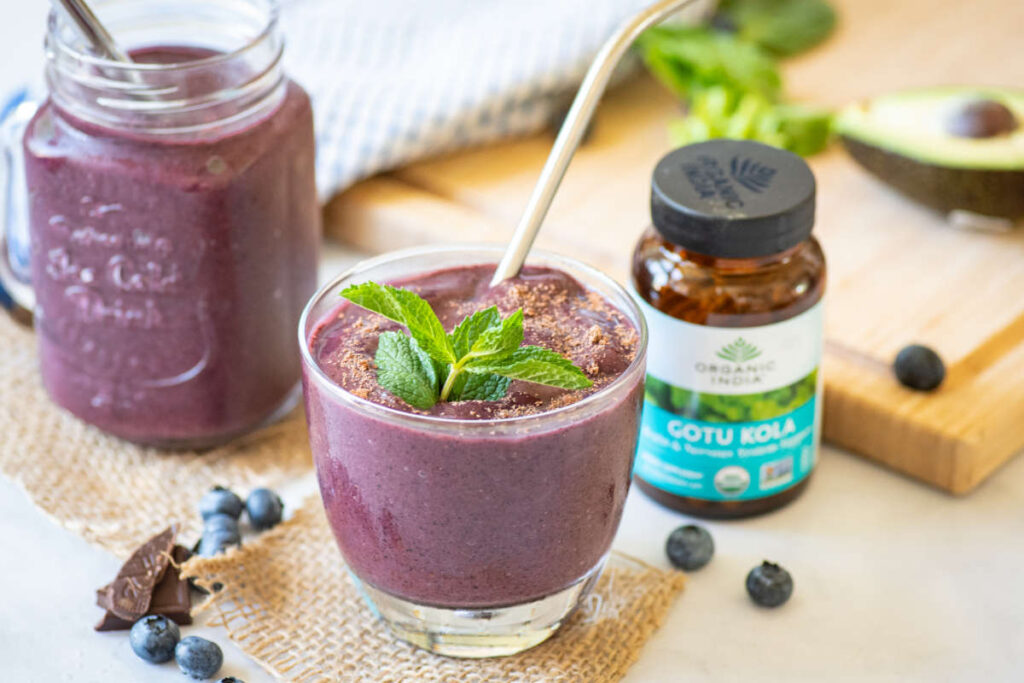
Are Indian Pennywort and Gotu Kola the Same?
Yes, Indian Pennywort is another name for Gotu Kola. They are the same plant.
It also goes by its scientific name, Centella asiatica, Asiatic pennywort, pennywort, mandukaparni, jalbrahmi, or its Sanskrit name, Brahmi, a derivative of Lord Brahma, the deity responsible for the world’s creative forces.
Indian Pennywort has also been called “the herb of enlightenment” because of its historical use to enhance spirituality, presence, and consciousness.
For more information, see Gotu Kola vs Bacopa: Seeking the Real Brahmi
Traditional Uses
Gotu Kola has been traditionally used for various aspects of health in Ayurveda, Traditional Chinese Herbalism, and Indonesian herbalism, including:
- Cognitive Function
- Cardiovascular function
- Digestive function
- Female genitourinary support
- For protection and good fortune
- Immune function
- Metabolic health
- Memory
- To enhance meditation, prayer, and spirituality
- Skin health
- Menstrual support
Although science has yet to study or validate many of these traditional uses, several studies have demonstrated the health benefits of Indian Pennywort, which we’ll discuss next.
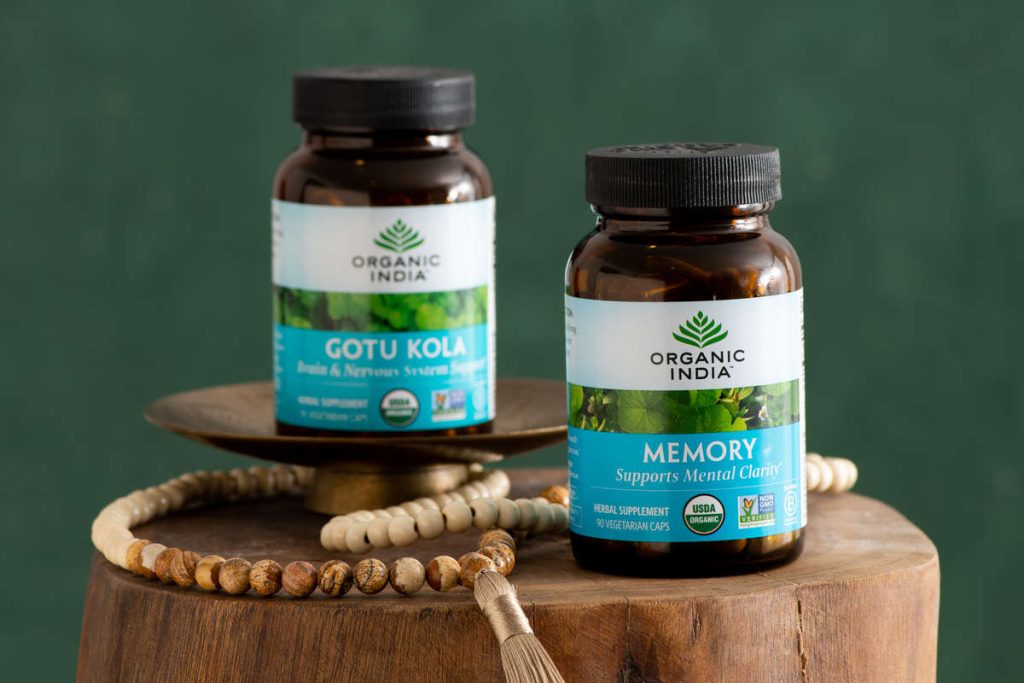
5 Indian Pennywort Health Benefits
This plant has a rich history of traditional use, particularly for cognitive function, has made it the subject of various research studies.
Here, we explore the health benefits of Indian Pennywort based on research and traditional use.
1. May Support Memory
Nootropics, like Indian Pennywort and Tulsi, have a rich history of use in global traditional herbalism as memory tonics.
Studies on Indian Pennywort for memory suggest its antioxidant triterpenes may support memory, learning, and neuroplasticity.
This is part of what’s earned it the reputation of “the herb of longevity,” as it is believed to promote vibrant health of body and mind.
2. Supports Skin Health and Regeneration
Indian Pennywort is legendary in the East for its beneficial effects on skin health, including beauty care, and soothing burns and wounds.
Research has shown that Indian Pennywort may have various skin-supportive properties, including antioxidants and plant compounds that promote normal regeneration, elasticity, collagen production, hydration, and more.
Although more research is needed, many people swear by the effects of using Indian Pennywort in facial packs to clear up acne, hydrate dry skin, or reduce the appearance of scars.
Ayurvedic practitioners also recommend its use internally to promote healthy skin and hair.
3. May Help Ease Stress via Its Effects on the Nervous System
Indian Pennywort has long been recommended as a tonic to help soothe the nerves, calm tension, and reduce stress.
Several studies suggest there is merit to this ancient wisdom, showing the plant’s active plant compounds, like antioxidants, may promote several aspects of the nervous system and neural cell function, including:
- Supporting normal nervous system response.
- Supporting mitochondrial function—mitochondria are the energy centers of the cells and critical to brain health).
- Supporting learning and memory, neurotransmitter function, and neuronal function and growth via
- Promoting overall nerve cell health
Although more research is needed, these preliminary studies support its traditional use as a brain and nervous system tonic.
4. May Help You Sleep
Although adaptogenic Ashwagandha is best known for its sleep properties, Indian Pennywort can provide similar benefits.
Specifically, its aforementioned effects on neurotransmitters, like feel-good serotonin (a precursor to melatonin, the body’s master sleep hormone) and dopamine, may help promote a healthy sleep cycle.
Its adaptogenic and stress-relieving qualities are also helpful for sleep and relaxation.
Finally, its unique sleep superpower may be its studied ability to protect the brain when going through a bout of difficulty sleeping.
Related reading: 7 Dreamiest Herbs For Sleep With Ayurvedic Insights
5. May Promote Hair Growth
In traditional herbalism, including Ayurveda, what’s good for the skin is also typically good for the hair.
This is true of Indian Pennywort, which has a long history of use as a topical and internal herb to promote healthy hair growth.
Some research backs this up, with one study showing the topical application of a hair ointment with this herb helped increase hair growth.
Indirectly, we also know Gotu Kola reduces stress (as noted in the above points) and may have a positive effect on adrenal function via its adaptogenic properties.
Stress is well-known to impede hair growth and lead to premature hair loss in men and women.
The Vedics also believe the plant’s cooling and circulatory-promoting properties may contribute to its hair-health properties, but more research is needed.
Stay tuned for a future article on how to use Gotu Kola for hair health.
In the meantime, check out 5 Best Herbs for Hair Growth and How to Use Them for more information on other herbs for hair health.
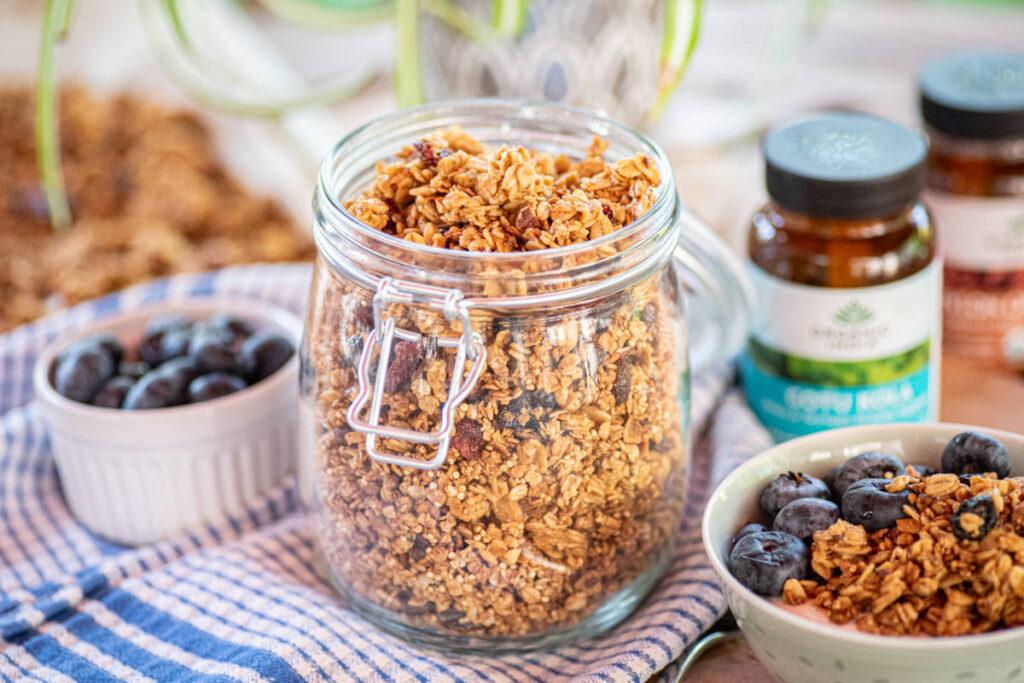
How To Use Indian Pennywort
Indian Pennywort is commonly taken as a tea or supplement but can also be found in Asian markets as a leafy green.
It’s also found in various Ayurvedic beauty and haircare products.
The right dose to take depends on the individual, their dosha, health goals, the concentration, form, and makeup of the herbal preparation, and other individual factors.
Check with your healthcare practitioner for individual recommendations.
As a general starting point to consider, Organic India’s Gotu Kola (Indian Pennywort) Herbal Supplement contains 700 mg of Gotu Kola per capsule, with a recommended daily dose of 2 capsules.
Teas typically combine Gotu Kola with other supportive herbs and, therefore, often have lower concentrations.
For topical use, look for a Gotu Kola powder or open the capsules to use in facial packs, homemade masks, or mixed into your favorite shampoo or hair oil.
Who Should Not Take Indian Pennywort?
Check with your Ayurvedic or healthcare practitioner for individual recommendations, but research has shown Gotu Kola/Indian Pennywort is generally very safe to take.
Note, since safety studies are lacking, it is generally not recommended when pregnant or nursing.
Choose Safe and Pure Organic Herbs
Not all Indian Pennywort/Gotu Kola is created equal, and contamination is common in this swamp-loving herb.
This is why it is essential to buy from a company that controls supply from farm to capsule (or tea bag).
At Organic India, our co-op of regenerative farmers grows all the certified organic Indian Pennywort used in our products.
We ensure purity by testing every batch for contaminants such as heavy metals, mold, and pesticides so you can enjoy our products with confidence.
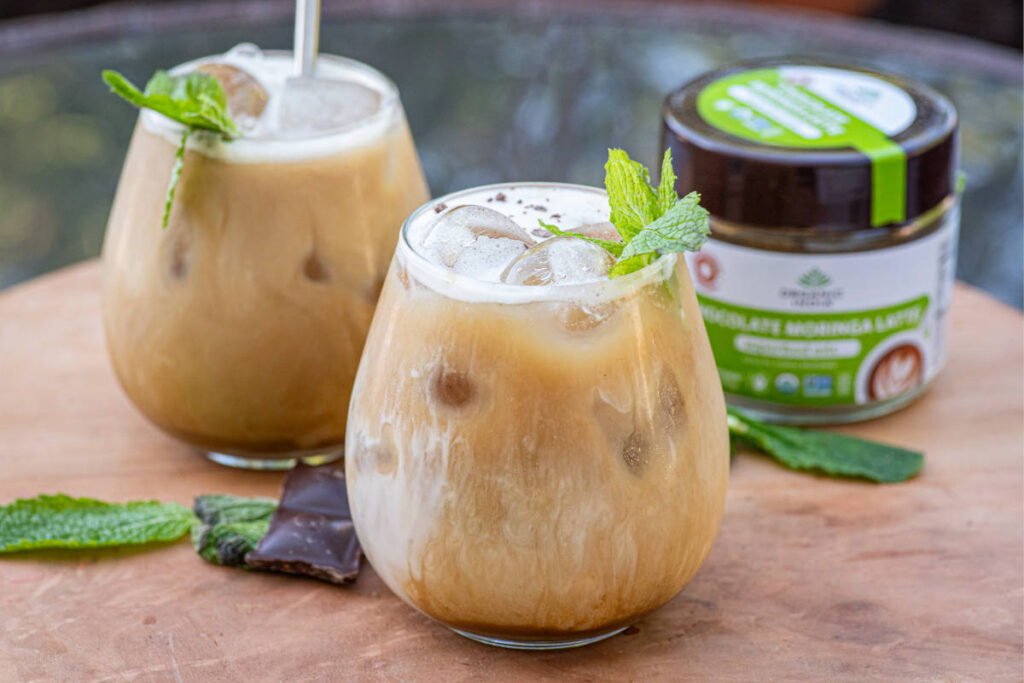
Discover the benefits of Gotu Kola for yourself with Organic India’s:
- Chocolate Moringa Latte
- Gotu Kola Brain & Nervous System Support Capsules
- Joy! Capsules
- Memory Capsules
- Peaceful Sleep Capsules
We also have several tasty Indian Pennywort recipes, including:
May they bring your long life, joy, and enlightenment!

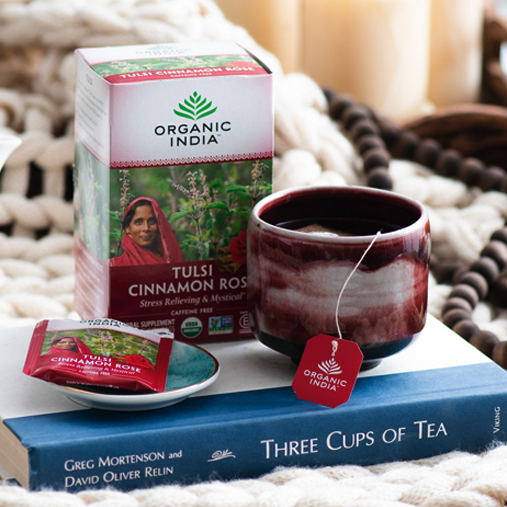
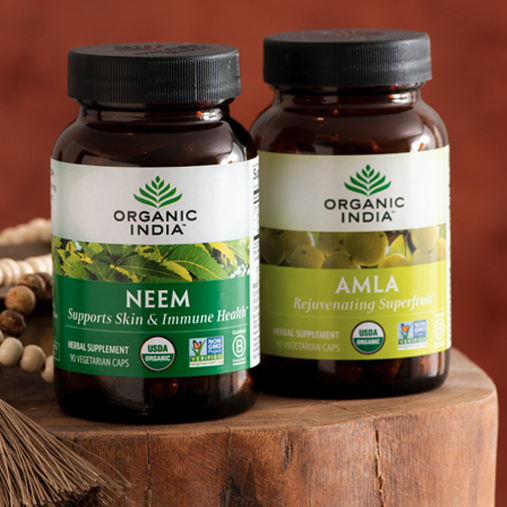
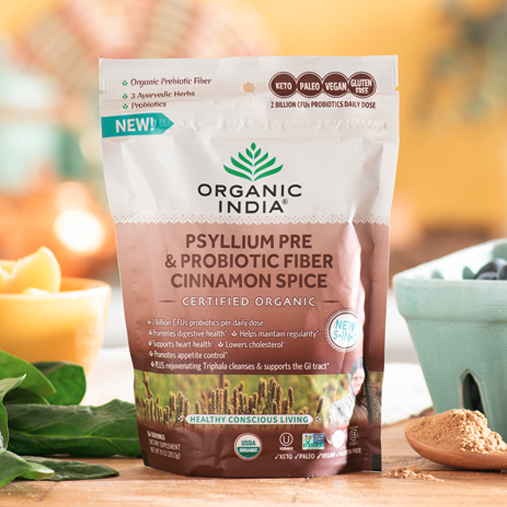
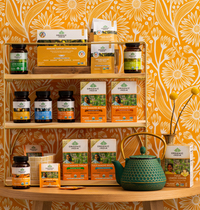



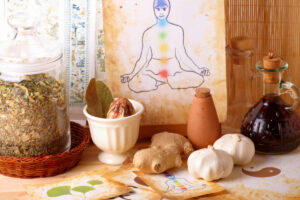
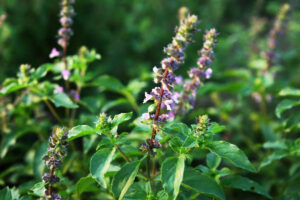
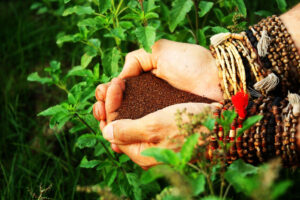


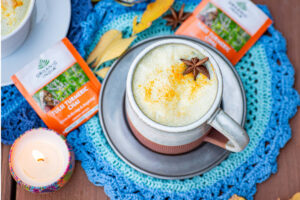

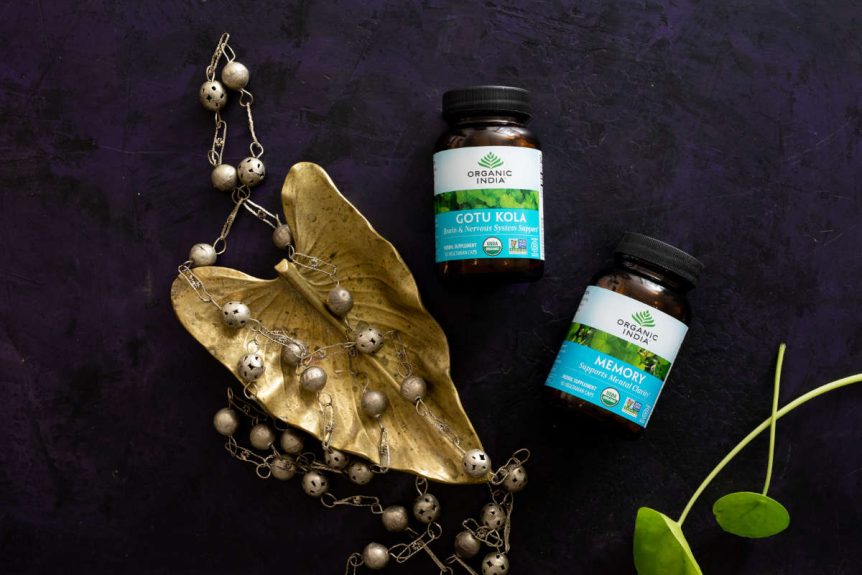
 Kristen Boye is a freelance natural health and green living writer, copywriter, and editor. Kristen was raised on an organic farm in British Columbia which inspired her life’s work. She holds a Bachelor’s Degree in Natural Health, is a Certified Natural Foods Chef, a medicinal herb farmer, natural foods advocate, and is obsessed with writing, homesteading, researching, regenerative agriculture, and words in general. Kristen lives with her husband and two children on their medicinal herb farm in Western North Carolina.
Kristen Boye is a freelance natural health and green living writer, copywriter, and editor. Kristen was raised on an organic farm in British Columbia which inspired her life’s work. She holds a Bachelor’s Degree in Natural Health, is a Certified Natural Foods Chef, a medicinal herb farmer, natural foods advocate, and is obsessed with writing, homesteading, researching, regenerative agriculture, and words in general. Kristen lives with her husband and two children on their medicinal herb farm in Western North Carolina.